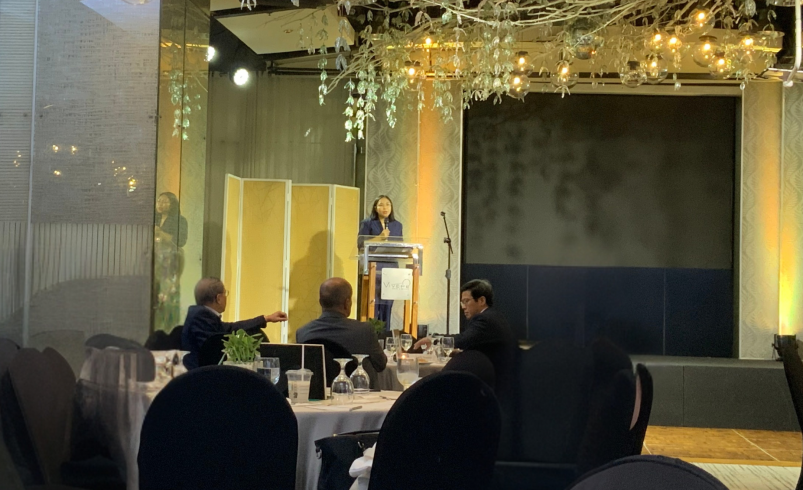First Gen warns price caps are distorting signals in Philippine power markets
- October 7, 2025
- 0

First Gen Corporation warned that price caps and regulatory interventions across the country’s power markets are preventing prices from reflecting real system conditions, distorting investment signals and slowing the entry of needed capacity.
At the recent ENERCON 2025: The 4th International Conference on Energy and Environmental Economics, Gian Karla Canales-Gutierrez, head of Industry Research & Advocacy at First Gen, where she presented “Power, Policy, and Price: A Case for Electric Market Efficiency”.
She said power prices in the Wholesale Electricity Spot Market (WESM) were prevented reflecting actual system conditions for nearly a month in 2024 because of the secondary price cap. Data presented showed that between March and June 2024, the PHP 6 per kilowatt-hour (kWh) cap was triggered frequently enough to distort market pricing and block peaking plants from recovering true costs.
“Whenever there are price mitigations, there is a generalist ability for the market to provide the correct price signals.” Gutierrez said.
The company warned that capping prices during high-demand periods leads to the wrong investment signals. Instead of encouraging peaking facilities to enter the market, the artificial ceiling may favor baseload developers, which do not address tight supply situations during summer months.
Aside from the spot market for energy, similar concerns extend to the reserve market. The First Gen official said the ancillary services market, which operates on a separate spot basis, is also constrained by a price cap PHP 25 per kWh compared to WESM’s PHP 32 per kWh. The speaker pointed out that this lower ceiling sends the message that investing in reserves is less attractive even if system reliability requires it.
The company noted that regulators also suspended the reserve market during price spikes in March to May 2024, delaying payments to ancillary service providers until January 2025. The lag, it said, signaled instability for developers exploring fast-ramping technologies needed to support renewable energy.
“When you can’t predict what policies will be in place, how you will be able to recover your investment in a certain technology.” She added.
First Gen also flagged contradictions in the regulated contracting space. While the Department of Energy requires competitive selection processes (CSP) for long-term supply agreements, the Energy Regulatory Commission (ERC) often conducts cost-based evaluations even after the lowest bidder has been selected. The group said suppliers are sometimes required to deliver at lower rates than those awarded and are barred from backing out, complicating investment planning.
However, the firm acknowledged indications of policy shifts under the ERC’s current leadership. The speaker said the commission is considering focusing its evaluation on whether CSP guidelines were properly followed, rather than reopening cost assumptions in every contract. The company said this approach could balance price protection with regulatory predictability.
On the retail side, the First Gen official described the unregulated market as a “slow-moving” alternative. Retail competition started in 2013 for 1-megawatt contestable customers and has gradually expanded to 500-kilowatt users. The Green Energy Auction Program (GEAP) is open to those using at least 100 kW, while retail aggregation allows small consumers to combine demand to meet the 500 kW threshold. But access to these schemes remains limited to large power users.
The speaker also said renewable energy support markets are still developing. Under the Renewable Portfolio Standards (RPS), RE generators receive tradeable certificates priced at up to PHP 241 each, but the market remains thin because compliance purchases are only starting this year under a new DOE timeline.
Meanwhile, the Green Energy Auction Program (GEAP) has faced challenges meeting capacity targets. Prices set in the first two auction rounds were viewed as too low, leading to under-subscription and delayed project delivery. First Gen said fixed-rate, long-term contracts with caps that do not match financing models make it difficult for developers to commit.
The company warned that across multiple market segments—WESM, reserves, regulated contracting, retail supply, and RE mechanisms—policy safeguards designed to protect consumers may unintentionally distort pricing and delay investment in needed capacity.
“The general message that we’re trying to show here is that we need efficient power markets. We need those price signals to guide our investment decisions and consumer behavior.” The speaker added.
First Gen said efficient power markets are critical to guiding both developers and consumers, especially as the Philippines aims to reach 35% renewable energy in the generation mix by 2030 and 50% by 2050.
Follow Power Philippines on Facebook and LinkedIn or join our Viber community for more updates.